January 29, 2024
Lab rats – how the UK life sciences sector is struggling to find space to work
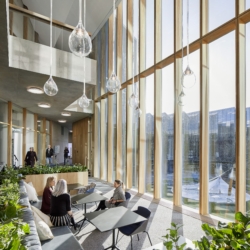 In November 2023, plans to turn part of a golf course next to a motorway into a £340 million science park were refused by South Oxfordshire District Council. Although now classified as greenbelt, the location was the site of a landfill as recently as the 1990s and is just a stone’s throw from both the A40 trunk road and M40 motorway. The developers are expected to appeal. Whatever the details of this story, it is an example of how challenging it can be to meet demand for lab and life sciences space in the so-called Golden Triangle of London, Oxford and Cambridge in the South of England. This lack of supply is acting as a brake on the UK Government’s dream of making the country a “science superpower”. (more…)
In November 2023, plans to turn part of a golf course next to a motorway into a £340 million science park were refused by South Oxfordshire District Council. Although now classified as greenbelt, the location was the site of a landfill as recently as the 1990s and is just a stone’s throw from both the A40 trunk road and M40 motorway. The developers are expected to appeal. Whatever the details of this story, it is an example of how challenging it can be to meet demand for lab and life sciences space in the so-called Golden Triangle of London, Oxford and Cambridge in the South of England. This lack of supply is acting as a brake on the UK Government’s dream of making the country a “science superpower”. (more…)





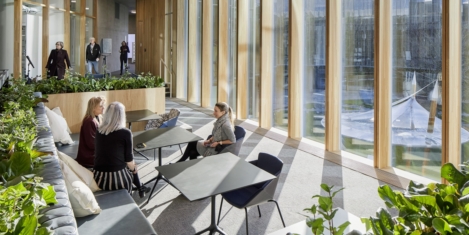



 We know, and have for a long time, that the workplace is in a state of near constant flux. The meteor strike of lockdown was an accelerant, not a deviation. It also laid bare -yet again – the faulty assumption that there is some sort of general evolution towards an idealised version of the office or conversely the universal adoption of remote or hybrid working, whatever it is. That is why we see so many people routinely willing to suspend their critical facilities to make extravagant and even absurd predictions about the office of the future or even the death of the office.
We know, and have for a long time, that the workplace is in a state of near constant flux. The meteor strike of lockdown was an accelerant, not a deviation. It also laid bare -yet again – the faulty assumption that there is some sort of general evolution towards an idealised version of the office or conversely the universal adoption of remote or hybrid working, whatever it is. That is why we see so many people routinely willing to suspend their critical facilities to make extravagant and even absurd predictions about the office of the future or even the death of the office.



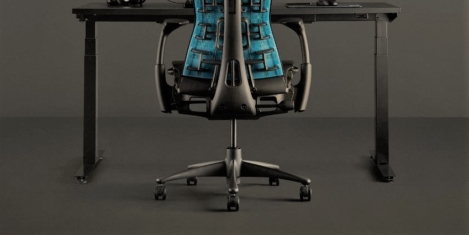
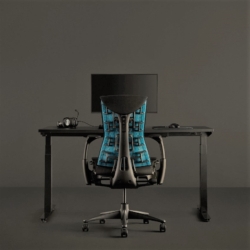 MillerKnoll, the global collective of dynamic design brands, has published its
MillerKnoll, the global collective of dynamic design brands, has published its 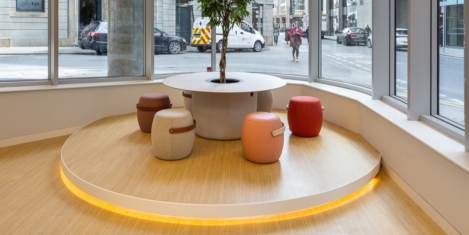
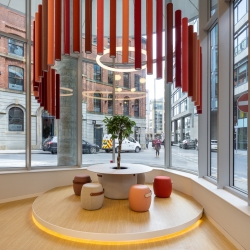 Way before the lockdown rewired the whole events scene in cities around the world, I was given a task by an old, now departed, friend. He wanted to explore the possibility of creating something like Clerkenwell Design Week in Manchester. The obvious problem was that, for some of its historic parallels, Manchester isn’t Clerkenwell and it certainly isn’t London. What it particularly lacked for this type of event was a hothouse of office design showrooms sharing space with a youthful community of architects and designers. The ecosystem for such an event didn’t really exist in the same way.
Way before the lockdown rewired the whole events scene in cities around the world, I was given a task by an old, now departed, friend. He wanted to explore the possibility of creating something like Clerkenwell Design Week in Manchester. The obvious problem was that, for some of its historic parallels, Manchester isn’t Clerkenwell and it certainly isn’t London. What it particularly lacked for this type of event was a hothouse of office design showrooms sharing space with a youthful community of architects and designers. The ecosystem for such an event didn’t really exist in the same way. 
 According to
According to 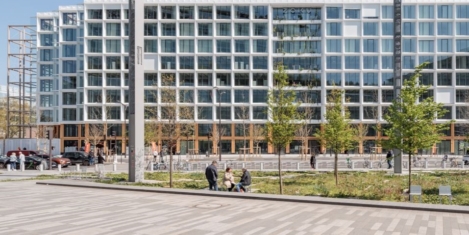
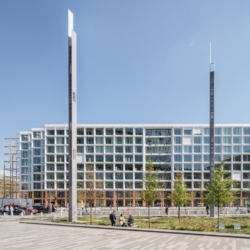












February 1, 2024
Underutilised office space? I just can’t be bothered with it
by Mark Eltringham • Comment, Flexible working, Workplace design
(more…)